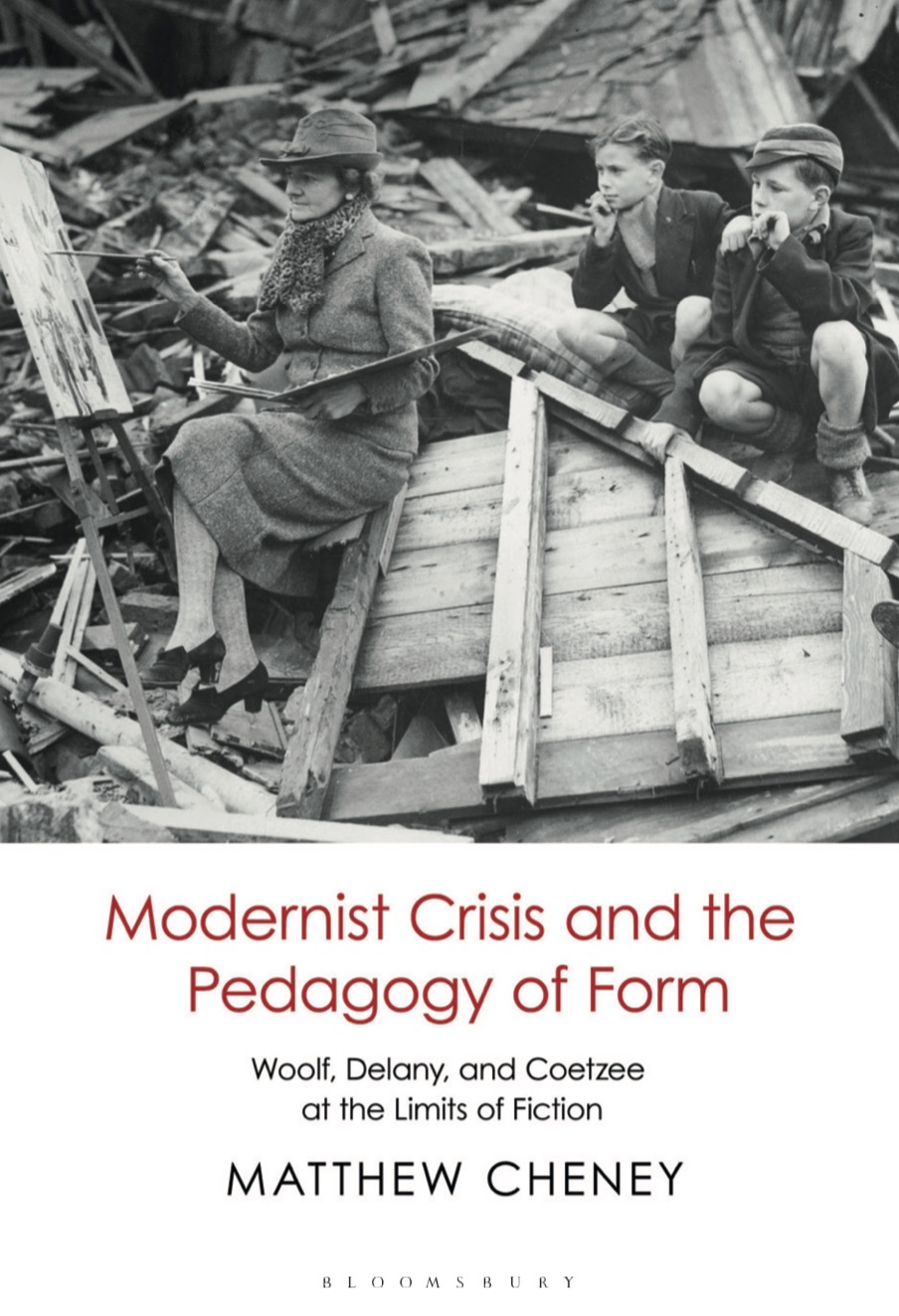Modernist Crisis and the Pedagogy of Form
What is the role of the author in times of crisis? Modernist Crisis and the Pedagogy of Form examines how Virginia Woolf, Samuel R. Delany, and J. M. Coetzee developed literary strategies in common to cope with crisis periods they were anticipating, living through, or looking back on. Matthew Cheney outlines how the three writers shaped their art to create an author/audience relationship congruent with the goals of critical pedagogy espoused by such thinkers as Paulo Freire and bell hooks.
Seeking to stimulate ethical thought, Woolf, Delany, and Coetzee required their readers to be active interpreters of their texts’ forms, contents, and contexts. By pushing against fiction’s fictionality, these writers of very different backgrounds, geographies, privileges, situations, tastes, and styles discovered complex ways to address the world wars in England, the AIDS crisis in New York, and apartheid in South Africa, going so far as to question the value of fiction itself.
“Modernist Crisis and the Pedagogy of Form is a timely book in a time of crisis. With his astute and eloquent analyses of three major authors-the British Virginia Woolf, enshrined in the literary canon; the South African-born J. M. Coetzee, a Nobel Prize winner; and the American Samuel R. Delany, inducted into the Science Fiction and Fantasy Hall of Fame-Matthew Cheney argues on behalf of the relevance of literature and the humanities in our own era. Woolf, Coetzee, and Delany wrote 'as Rome was burning,' and Cheney shows that they were not fiddling but rather, in their challenging of the boundaries between fiction and nonfiction, crafting new ways of learning, thinking, and teaching.
–Jeanne Dubino
editor, "Virginia Woolf and the Literary Marketplace"; co-editor, "21st-Century Approaches to Virginia Woolf"
“Modernist Crisis and the Pedagogy of Form is a powerful and engaging study of modernism and its literary legacies through the writing of Virginia Woolf, J.M. Coetzee, and Samuel R. Delany. Cheney offers critical interpretations of 'crisis,' 'newness,' and 'pedagogy' in the works of these three authors, and explores the anxieties that writers often feel about the socio-political value of their work. He has produced a book that not only addresses the field of modernism, but one that also engages with broader ideas about the meaning of art and the persistent relevance of the novel as an artistic and pedagogical form.”
–Lavelle Porter
author, "The Blackademic Life: Academic Fiction, Higher Education, and the Black Intellectual"

